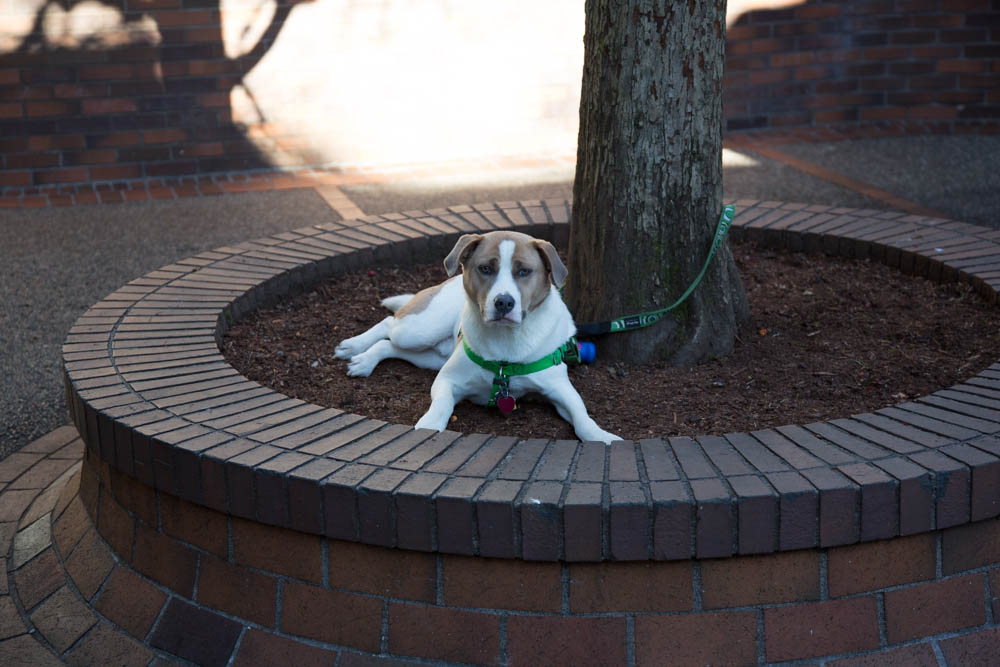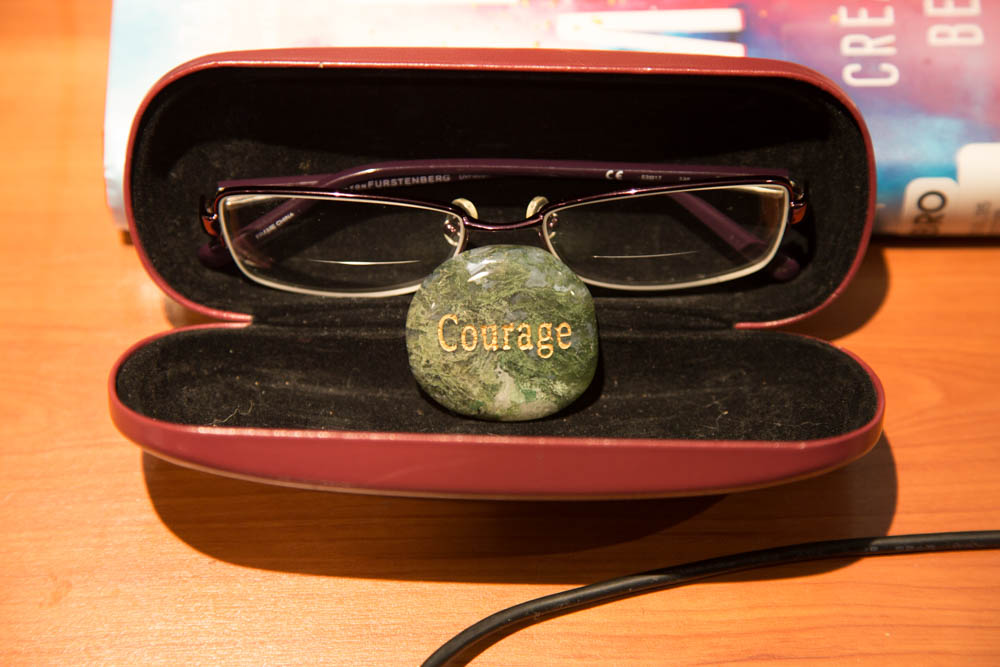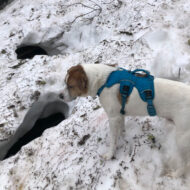Last week, my husband and I had a conversation that could have easily led me down a rabbit hole into hopelessness. Seeing as how I’m embracing change this year, I refused to let it. Instead, it gave me an empowering idea. If November is known to novelists as NaNoWriMo (National Novel Writing Month), what if October became known as OcTraPiMo (October Trash Pick-up Month)?

The Birth of an Idea
My husband told me about one of his friends who recently drove from Seattle to Portland to watch his kids participate in invitational cross-country meets. As he crossed into Oregon, he said the number of homeless people, trash heaps, and tent cities increased dramatically all the way into the city. When he registered at his hotel, the clerk insisted that he bring all valuables from his car inside. “The parking lot is no longer safe,” he was told, despite lights brighter than daylight.
Similarly, when I drive through downtown Seattle, graffiti and tags cover public buildings, overpasses, side streets, thruways. Trash litters the highway below tent cities near freeway banks. People have caused severe burn scars where they’d had city fires.
As recently as ten years ago, we had none of this, at least nowhere near as visible or ubiquitous as now. What’s happened to our beautiful region? Where’s the pride, the care?
When Anger Boils, Listen
As I listened to my husband relate his friend’s story, I grew more disgusted and increasingly incensed. Historically whenever I feel my personal power slipping away in a discussion, I withdraw, thinking surely the other person must be right.
But not this time. I’ve had enough of our beautiful area being trashed. On a tiny scale, I can relate to what indigenous peoples must have felt when the first wave of settlers swarmed into the area.
But what can one person do? When I walk my dog beyond my clean, well-cared-for neighborhood streets and see litter in every direction, I turn a blind eye. “It’s not my property,” I think. “It’s not my responsibility.” And in today’s litigious society, even, “I might get sued for trespassing.”
Is that how we all feel? Ignore it, because what can a single person do? It’s someone else’s problem?

Ingrained Integrity
In the mountains whenever I come across anything that doesn’t naturally belong, even orange peels or apple cores that will eventually decompose, I pick them up and pack them out. I carry my dog’s double-bagged poops with me, and I add to my load dog bags others drop along the path. I’ll stink so our beautiful trails don’t.
At Woodland Park Zoo, I watch for trash that visitors throw in the bushes. While it may be one of my responsibilities volunteering with the Horticulture team, I want to help the Zoo remain a beautiful green oasis in an overly crowded city. All guests have the right to enjoy it in its pristine state. I do these things already, naturally. Why not do the same thing in the yards and streets beyond mine?
Transference of Habits
I could easily carry a pair of rubber gloves in my pocket. And it’s easy to attach a large plastic bag inside a sturdier handled canvas carrier so I can remove the most eye-offending trash. Other families have done this near the library and schools with their kids. Those children are our future. Like sponges, they see and hear everything. They need to see adults making a positive difference so that they know they can, too.
Individual acts of kindness can cause a ripple effect.
While I may not be able to single-handedly clean up the country, the state, even my city, I CAN do my small part. And if whole bunches of individuals did the same thing, imagine the world of difference we could make. For each bag of trash collected and properly disposed of, the earth would be one bag cleaner. Each scrap of plastic we remove means that birds and fish will ingest less garbage. We can become stewards of the entire planet, not just special places like trails, parks, and zoos.
The Experiment
I decided to test out my OcTraPiMo idea two days before October, to get a jump-start developing my new habit. My “trash dog” (Ajax loves to get into the garbage cans when nobody is home) would become an actual trash dog. Our goal was to turn one of our three daily walks into a thirty-minute trash collection outing.

Anything larger than a quarter ended up in my bag. For obvious reasons, I excluded used needles, razors, human excrement, and broken glass. A week into my experiment, I added a category: other people’s bagged trash. With the number of squatters and homeless people growing on the perimeter of my North Seattle neighborhood, I don’t want to be inadvertently accused of stealing. I kid you not, I’ve seen and heard it all.
Test Run
In my first one-mile walk along a twenty-minute route I refer to as my “default”, I collected 90 pieces of trash. My walk around the neighborhood elementary school had always seemed so clean before. My haul included three AA batteries, a scrap of a child’s toy tire discarded in the gutter, three masks, a plastic bottle, and an empty beer can. But the biggest offender was numerous scraps of plastic, including straw wrappers from juice boxes and broken forks tossed by school kids who eat outside due to the pandemic. I’m amazed by what you get used to and no longer SEE.
The second day I stayed in a residential part of the neighborhood and my trash count for the same duration was half. Masks and discarded beer, soda, or water bottles were the biggest offenders.
One Month, One Walk, One Bag at a Time
On day 3, my first official OcTraPiMo day, I headed a block west of the local elementary school in what I call “the valley.” My trash count doubled for a thirty-minute collection. Realizing I didn’t get it all, Ajax and I went back on day four, to collect 163 more pieces in 33 minutes. Something unusual happened on day five: my daughter asked to join us. We collected 169 pieces of trash on residential streets in 30 minutes.
And on day six, I smashed my record (is this a good or bad thing?) On a walk to school with my daughter, I collected 153 pieces during 33 minutes. Later in the afternoon, Ajax and I walked to the closest neighborhood library. My haul of 225 was so heavy — lots of wet cardboard, bottles, cans, and a heavy piece of a car I didn’t even know what to call it — that I dumped it in the library trash can and continued home to collect another 140.

Surprising Results
My OcTraPiMo month is in its infancy. I intend to continue for the entire month, possibly even beyond. But I can already celebrate and share several interesting takeaways:
More of What We Focus On
First, collecting trash has made me focus on… trash. And how much there is that we don’t even see. In just six days, I have completely switched my attention away from finding Little Free Libraries (my former walking obsession) and toward removing eyesores that harm the environment. Remember the Punch Buggy game, spotting VW cars and giving your neighbor a punch in the arm? Now I see trash everywhere. In less than a week, I feel guilty if I pass by a piece of garbage I could do something about.
Could we cultivate this same focus on good deeds or tiny positive steps we take toward our goals? If I can train myself to zoom in on trash, can I also train myself to focus on beauty? To look for the silver lining in every problem? To find at least one good quality in people who annoy me or situations that aggravate me?
Added Workout Benefits
Second, collecting trash provides a moderate workout. The more you pick up, the heavier your bag. Bonus resistance training! And bending over to pick up 300+ pieces of trash means your hamstrings, lower back, and glutes get extra stretching. I consider myself to be in good shape, but I recognize the value of additional circuit training, which trash pick-up can become. If you struggle to fit in exercise, or even hate the thought, don’t call it exercise, call it “greening your neighborhood.”

Increased Motivation
Third, as my trash numbers grow, my dedication to saving wildlife, setting a positive example for my daughter, beautifying my hometown, and contributing to the community in an empowering way increases. On day four of OcTraPiMo, a fellow dog walker noticed what I was doing… and thanked me. Nothing inspires me more than being helpful and feeling like I’m making a difference.
What one thing can you do today and (if you are feeling courageous) every day in October, to create change around you? Join the conversation.


This is awesome. Thanks for the laugh. I will start “greening my
Neighbour’s as well.
I wonder why people are leaving trash everywhere?
Each school should start its own “greening” program. The sooner they start the better.
I love your idea. Each city across the US & Canada should implement the OcTraPiMo Program. I know it is done at a smaller scale but this is not enough. We all need to be involved.
I let you know how I do it next month.👍
Thanks for the comment, Silvie Marie!
As to why people leave trash, there are probably a dozen or more reasons — a few: 1. Not enough public trash receptacles; 2. Accidents (I’ve had things fall out of my bag or pocket by mistake); 3. Seeing trash and thinking one more piece won’t matter; 4. Mowers shredding papers or plastic and wind dispersing them; 5. People tossing apple cores and banana peels out the window thinking they’ll decompose eventually; 6. Not having space/place to put something (I’m thinking homeless along the freeway who don’t have a living space other than a tent); 7. “I don’t care” attitude – cans tossed outside a window into bushes, for example. There are probably plenty of others.
I know we have Earth Day in April, but this idea needs to be bigger – why I proposed a month. But really, we need to be thinking YEAR-long scale. Decades. My wish is that one of the routes I’ve walked be trash free ONE DAY this month. I will report early in November what I found out. Go Green!
Courtenay
How inspiring!
I pledge to take a much smaller (and long overdue) step: adding a “trash collection” bag to my standard day hiking gear-list… and use it! For now I will set a weight and volume limit on items to pick up and bring back to the trail head – no discarded fridge or car bumper.
Looking forward to my first treasure hunt this weekend!
Sometimes all we need is a very small nudge….
Bravo, Gerard! Thanks for the comment and I look forward to hearing how your “treasure hunt” goes! It has certainly opened my eyes. Glad the nudge was helpful!
Fantastic work, Court! I love your outlook on life. Pam
Thanks, Pam!
I add one data point to the story: in the rain today I retraced a route I walked on day one of my experiment, but with one extra block tacked on. On October 1, I collected 107 pieces of trash. Today, I found 106 more. But a good third of that was discarded bottles in bushes in that extra block.
It’s hard to say whether that’s “progress” but I know if I hadn’t done what I did on day one, the route would have looked that much worse. Each day builds on itself. One day, one walk, one step, one piece of trash at a time.
Any change, from eating an elephant, to getting the body you want, to getting rid of an addiction, to cleaning up the world — any change begins with a single step.
Thank you so much for reading and commenting.
Courtenay